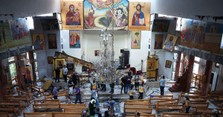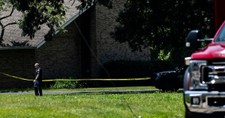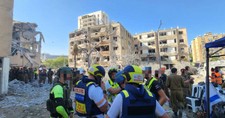
Trending Articles
Recent News
Lara Silva Opens Up about 'The Chosen,' Her Growing Faith, and Motherhood ‘The Chosen’ Actress Lara Silva Says the Series Strengthened Her Faith Tenth Avenue North Singer Defends CCM Amid Tait Scandal NFL Rookie Traeshon Holden Publicly Declares Faith in Christ through Baptism Popular Online Star 'Ninja' Begins Attending Church, Says Faith Is Changing His Life Why Mark Feuerstein Says 'Guns & Moses' Matters More after October 7 22 Christians Killed while Praying in Damascus Church Bombing ‘Guns & Moses’ Actor Mark Feuerstein Says He Stands with Israel in Fight against Iran Christian Leaders React to Israel’s Attack on Iran and US Response
Trending Articles
Recent News
Lara Silva Opens Up about 'The Chosen,' Her Growing Faith, and Motherhood ‘The Chosen’ Actress Lara Silva Says the Series Strengthened Her Faith Tenth Avenue North Singer Defends CCM Amid Tait Scandal NFL Rookie Traeshon Holden Publicly Declares Faith in Christ through Baptism Popular Online Star 'Ninja' Begins Attending Church, Says Faith Is Changing His Life Why Mark Feuerstein Says 'Guns & Moses' Matters More after October 7 22 Christians Killed while Praying in Damascus Church Bombing ‘Guns & Moses’ Actor Mark Feuerstein Says He Stands with Israel in Fight against Iran
Positive Stories
Celebrity
Video
Opinion
Church
Entertainment
Sports
Movies
Politics
Israel
Christian News Headlines - Breaking and Trending Religion News
Crosswalk Headlines - Christian news brought to you by a group of Christian writers and editors who are dedicated to creating a well-rounded look at what’s happening across the globe from a Christian worldview. Our vision is to inform and inspire productive discussion about the current events and online trends that shape our lives, our churches and our world.Crosswalk Headlines includes blog posts about current events and Christian media, breaking news, feature articles, and guest commentaries, many written by respected Christian thinkers.
































































